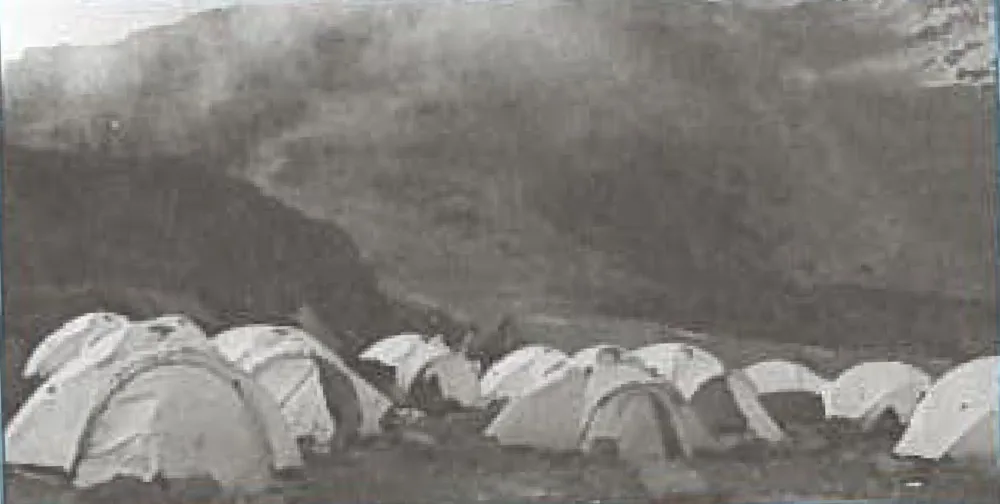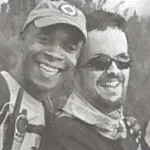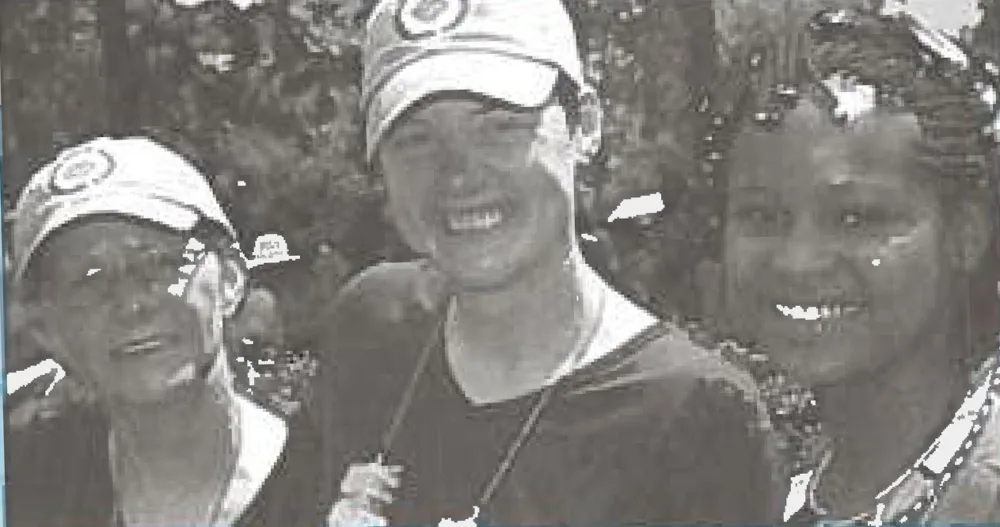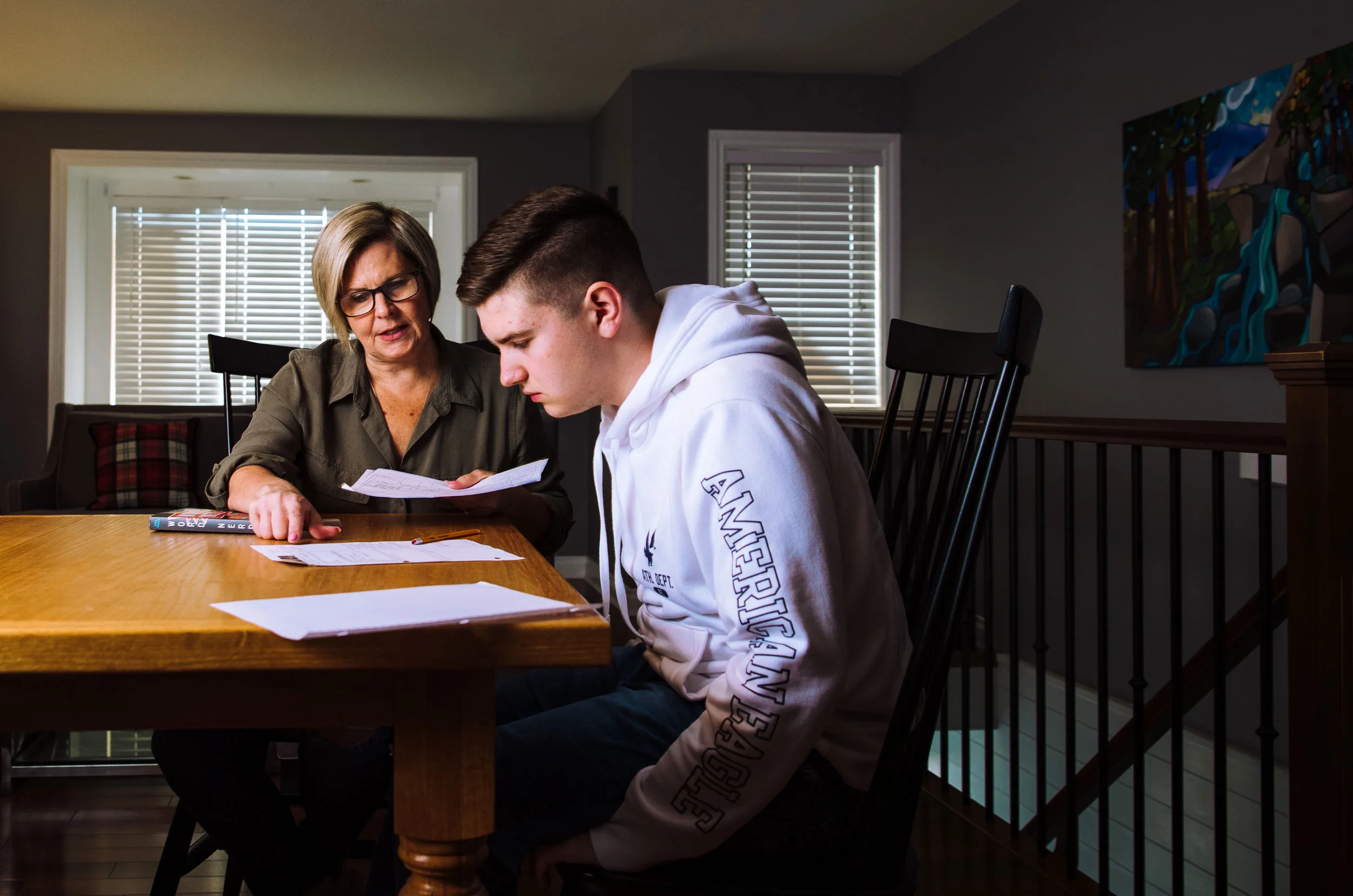The following article was taken from Inclusion BC’s newsletter from Spring 2006 called Community Living News when Inclusion BC had the name of BC Association for Community Living (BCACL).
Read the original newsletter article here
Community living climbers reach peak of success
By Rita Biermann
Just over a year ago, Paul Wheeler, executive director of Semiahmoo House Society, suggested the idea of climbing Mt Kilimanjaro as a public awareness and fundraising activity for member organizations of the BC Association for Community Living (BCACL).
It was a daunting task to take on, but 15 member associations rose to the challenge, and the Climb for Community Living – Mt Kilimanjaro 2006 was born. Working with mountaineer and guide Wally Berg (Berg Adventures), they began to learn more about the mountain, select climbing teams, and hold fundraising and community awareness events.
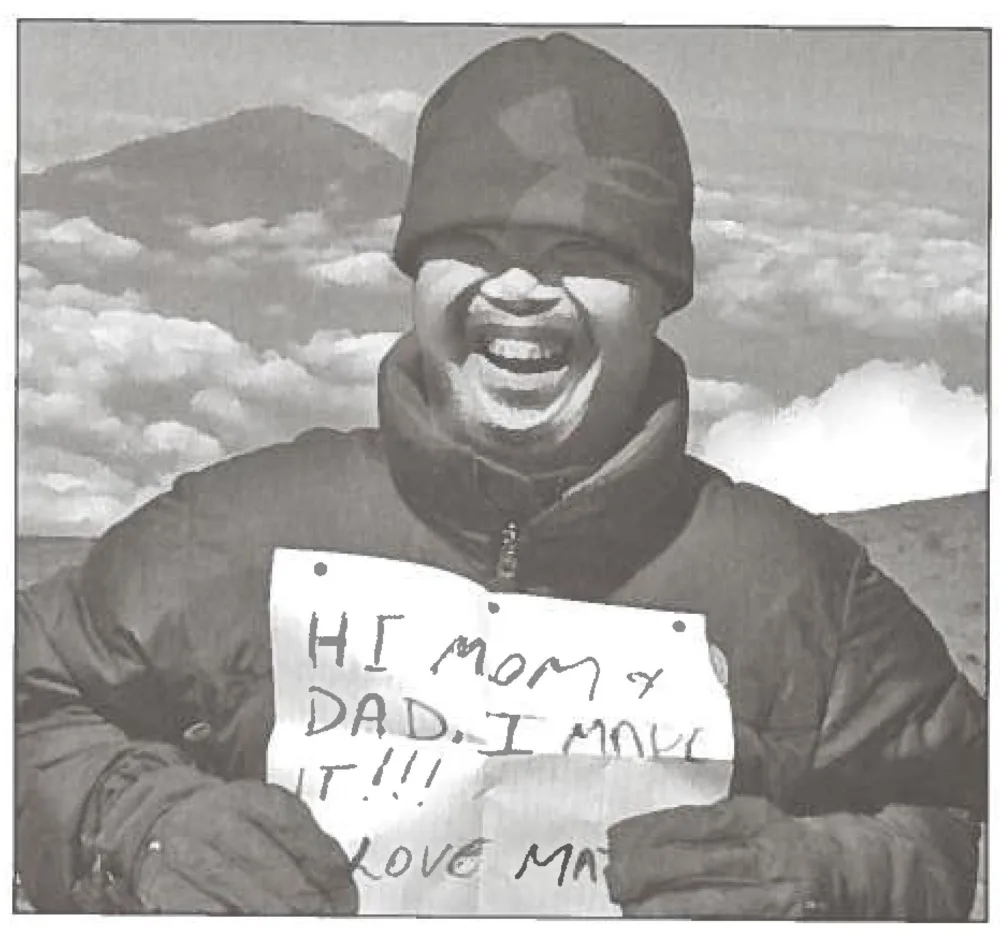
After months of hard physical training, 43 climbers – including 19 people with developmental disabilities – boarded a plane in Vancouver on February 7, 2006, headed for Arusha, Tanzania. Laney Bryenton, BCACL executive director, and Nancy Hoyano, BCACL board member, accompanied the team from the provincial office.
“Without teamwork we could not have succeeded on this mountain. It is important in life.”
-Stemphan Schoeller, NSAMH
The success of the climb surprised even the team members themselves! After seven days of slowly ascending the huge mountain, 40 climbers reached Stella Point at 19,000 feet, Brock Metcalf, from the North Shore Disability Resource Center, became the first person in the world to reach that height in an adapted wheelchair, called a Trailrider ©. Thirty climbers continued all the way to Uhuru Peak at 19,341 feet.
Tears were abundant as the group who made it to Uhuru Peak spent time in the clear, cold African morning, As they stood arm in arm and sang out the Swahili words Mungu Ibariki Tanzania (God bless Tanzania), each climber knew that the impact of their accomplishment would ripple far and wide.
“I am extremely proud of every team member,” said Laney Bryenton. “The team dynamics were brilliant, and it was very satisfying to watch support climbers work alongside their team member. Often the support was mutual.”
One of the supporters invited by Berg Adventures to assist with the trip was “Doc” – a trained pedatrician who had worked for a time in an institution for children with disabilities. Doc reviewed the climbers’ applications before meeting them, and confessed later that he thought only half of them would make it to the top of the mountain. After meeting the climbers in Arusha and assessing them in person, he thought only seven or eight would make it.
“What Doc didn’t know, and what he soon learned about,” said Laney Bryenton, “was the incredible power that comes from a community working hard towards a common goal. What amazed me most was the extraordinary will and ability of each climber to dig deep within themselves and find the strength to continue. It reaffirmed my belief that these climbers could achieve anything they wanted to with a community of support.”
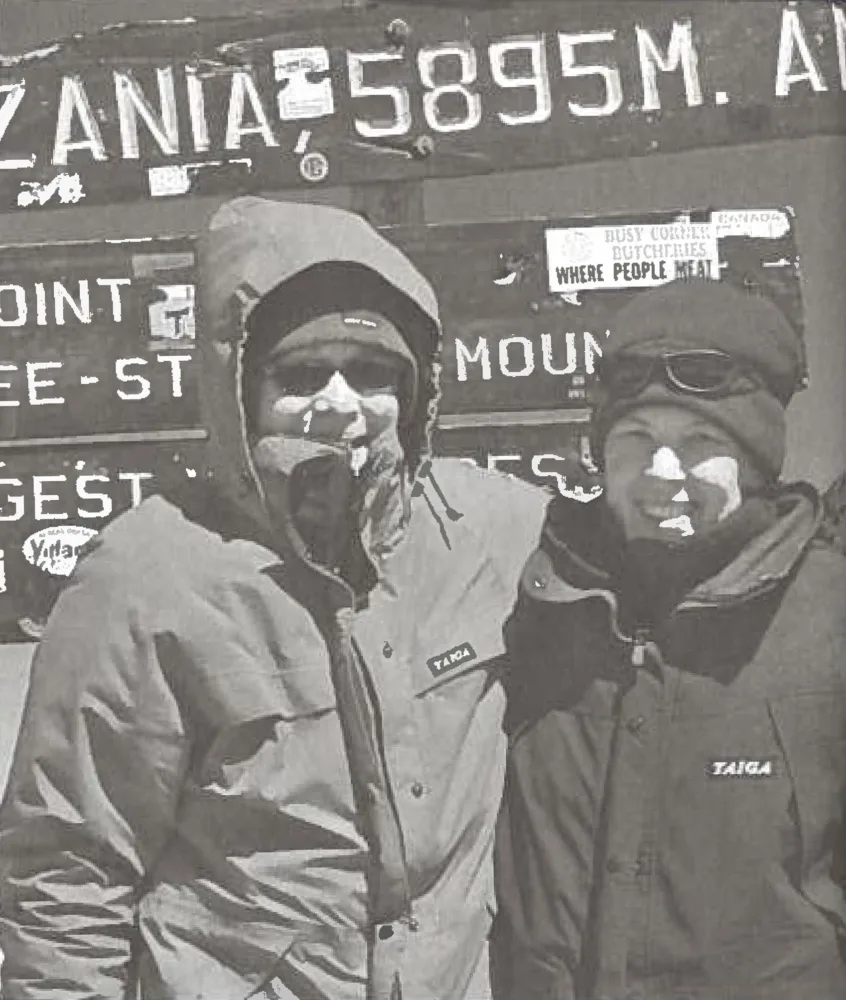
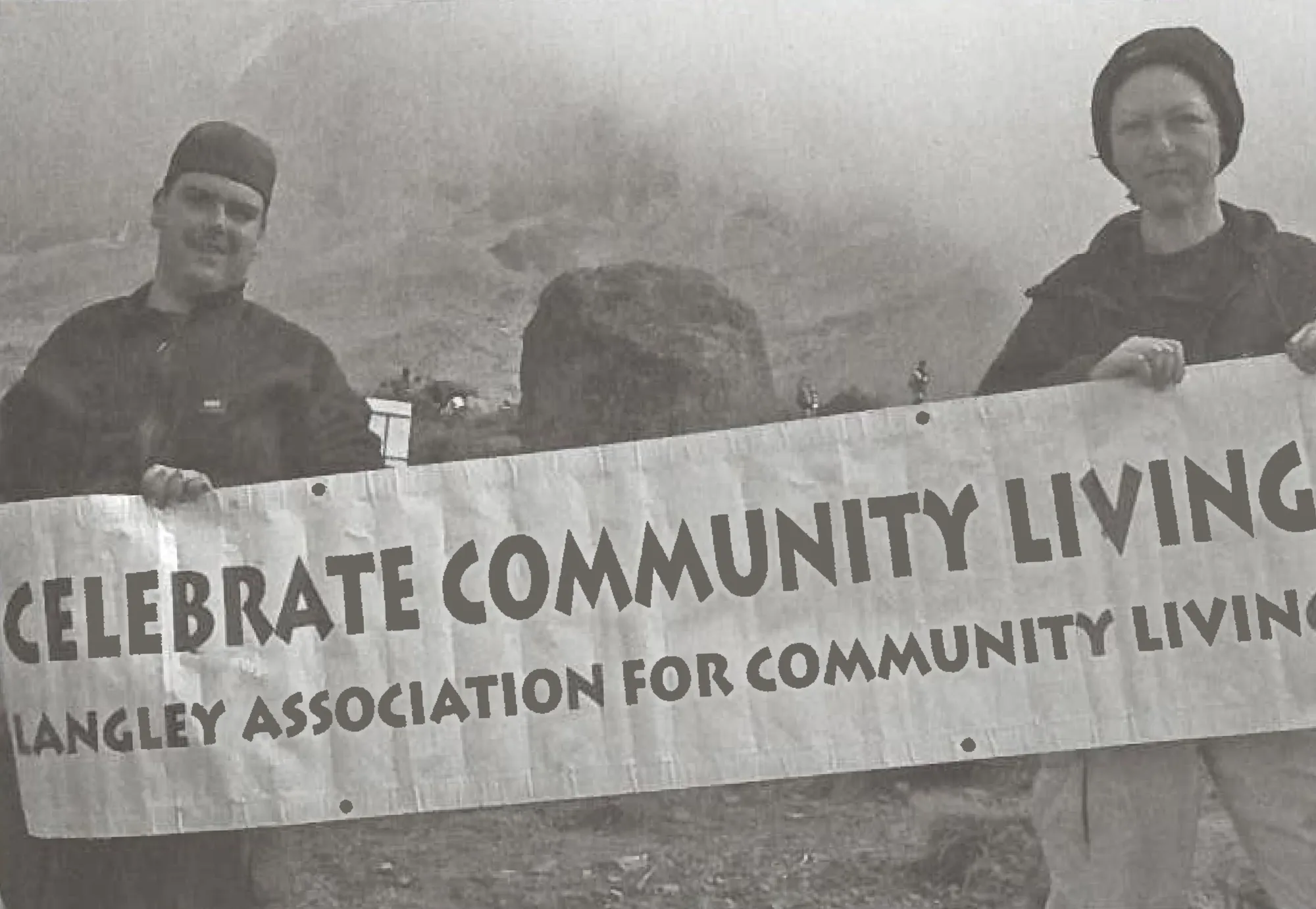
BCACL and the participating member associations received widespread coverage in the media and in their communities, raising the profile of community living and promoting the abilities of people with developmental disabilities. The provincial fundraising goal was set at an ambitious $500,000. To date, $342,000 has been raised with more funds coming in daily.
“I will never forget to 220 porters singing to me and my partner when we arrived at camp.”
-Matthew Brewer, AiMHi
“We started this campaign with three main goals – to raise public awareness of community living, to raise funds for programs and services in the local communities, and to allow people with developmental disabilities to live their dream. We met all three of these goals with success,” said Laney Bryenton.
“But there was a fourth outcome we ever dreamed of – the perception shift in the minds of the Tanzanian people about the abilities of people with developmental disabilities. We had 220 porters and guides on the mountain assisting us. The guides who spoke English would tell me of the discussions among the porters in the evening – how all of them were impressed that people with developmental disabilities had this opportunity to realize their dream. They talked about how this trip had changed them and how they would return to their communities and talk about this team’s amazing achievement.”
“I am very honoured to have been a part of writing history with this group. All 43 of us proudly demonstrated the importance of inclusion and community living,” said Bryenton.
The climbers will tell their story again and again, but more importantly, so will the people they met on the mountain. The word will spread that a group of British Columbians came to Mt Kilimanjaro to teach understanding, promote inclusion and demonstrate the successes and heights a community can reach when everyone belongs.
